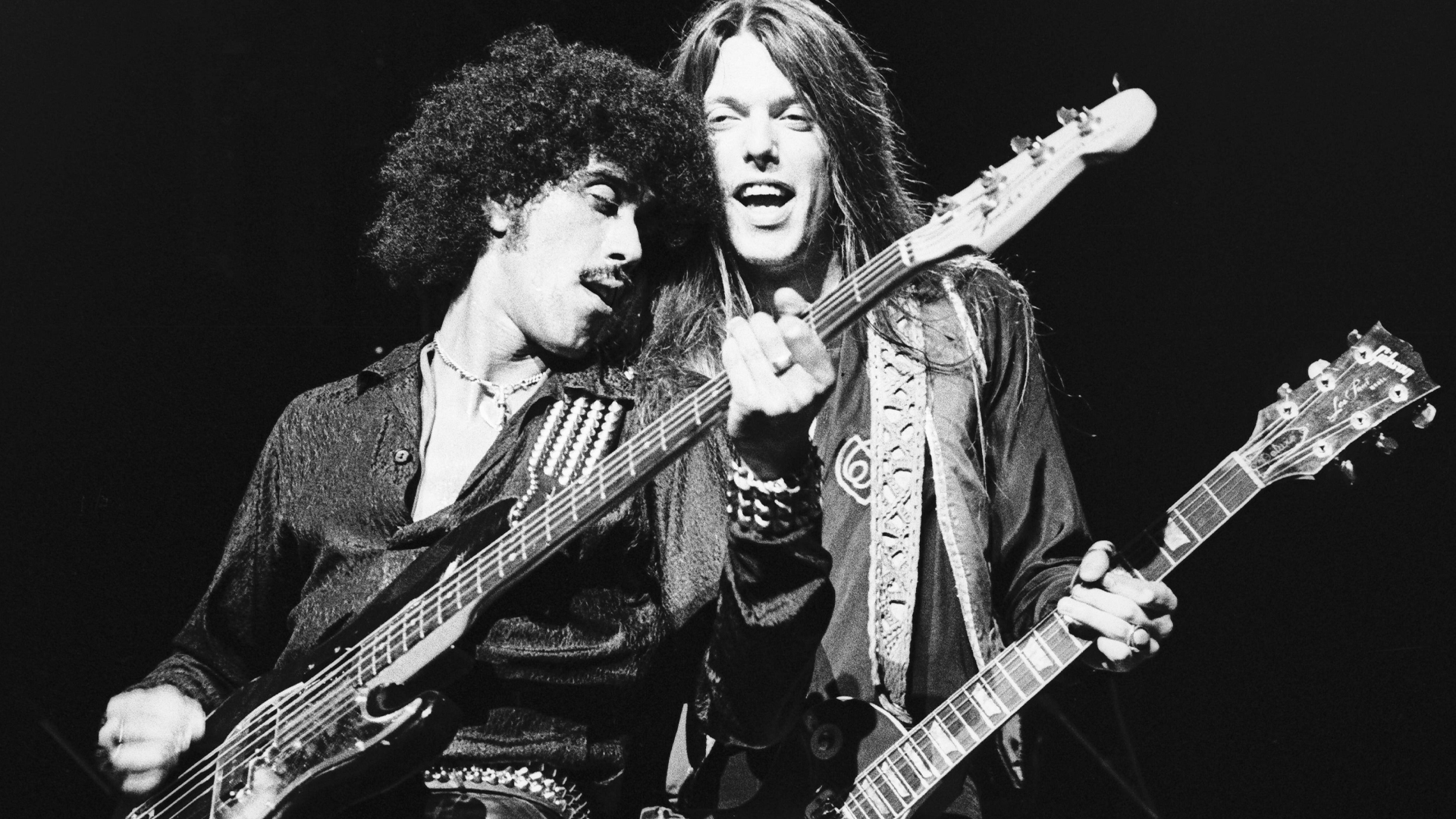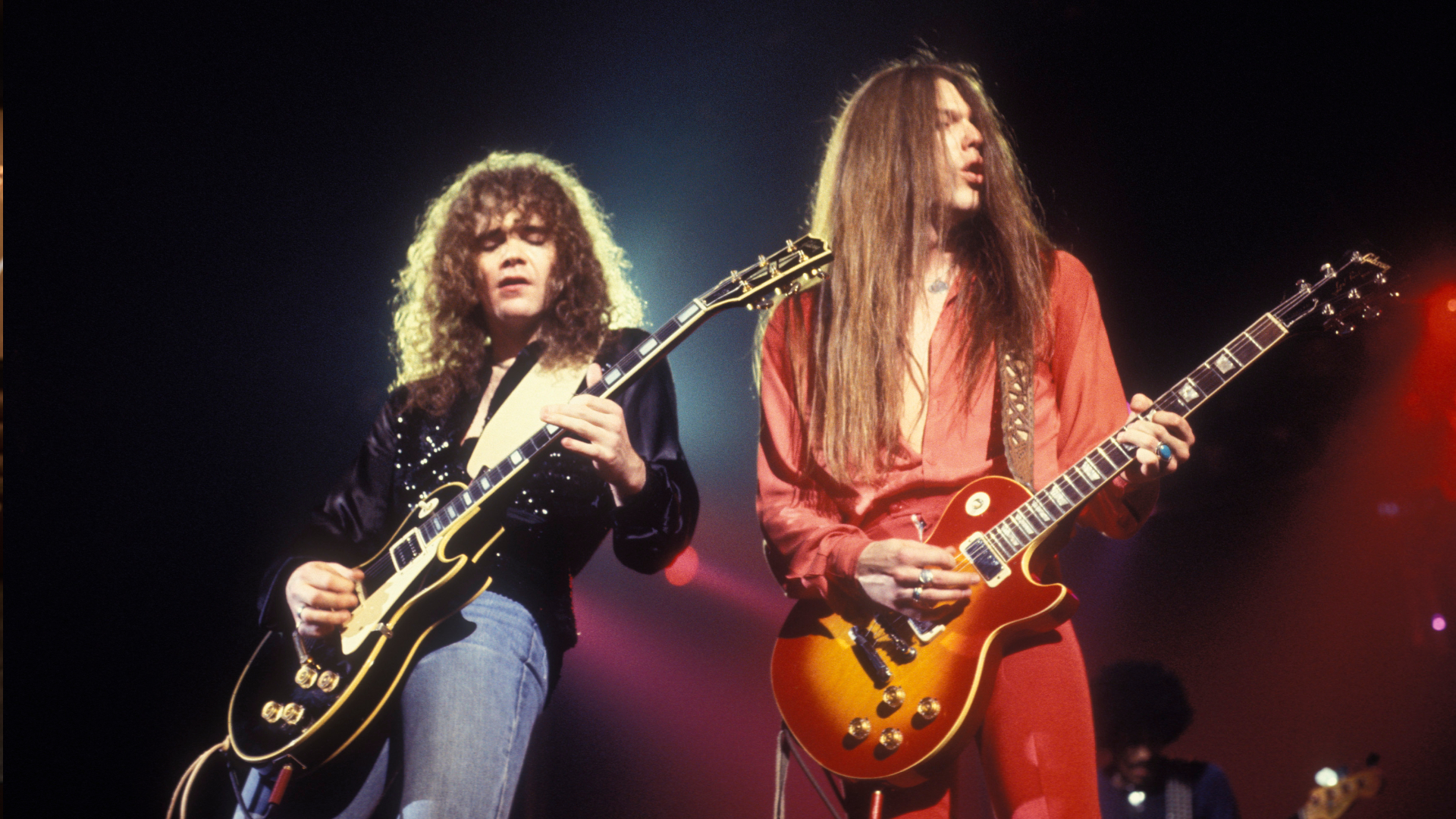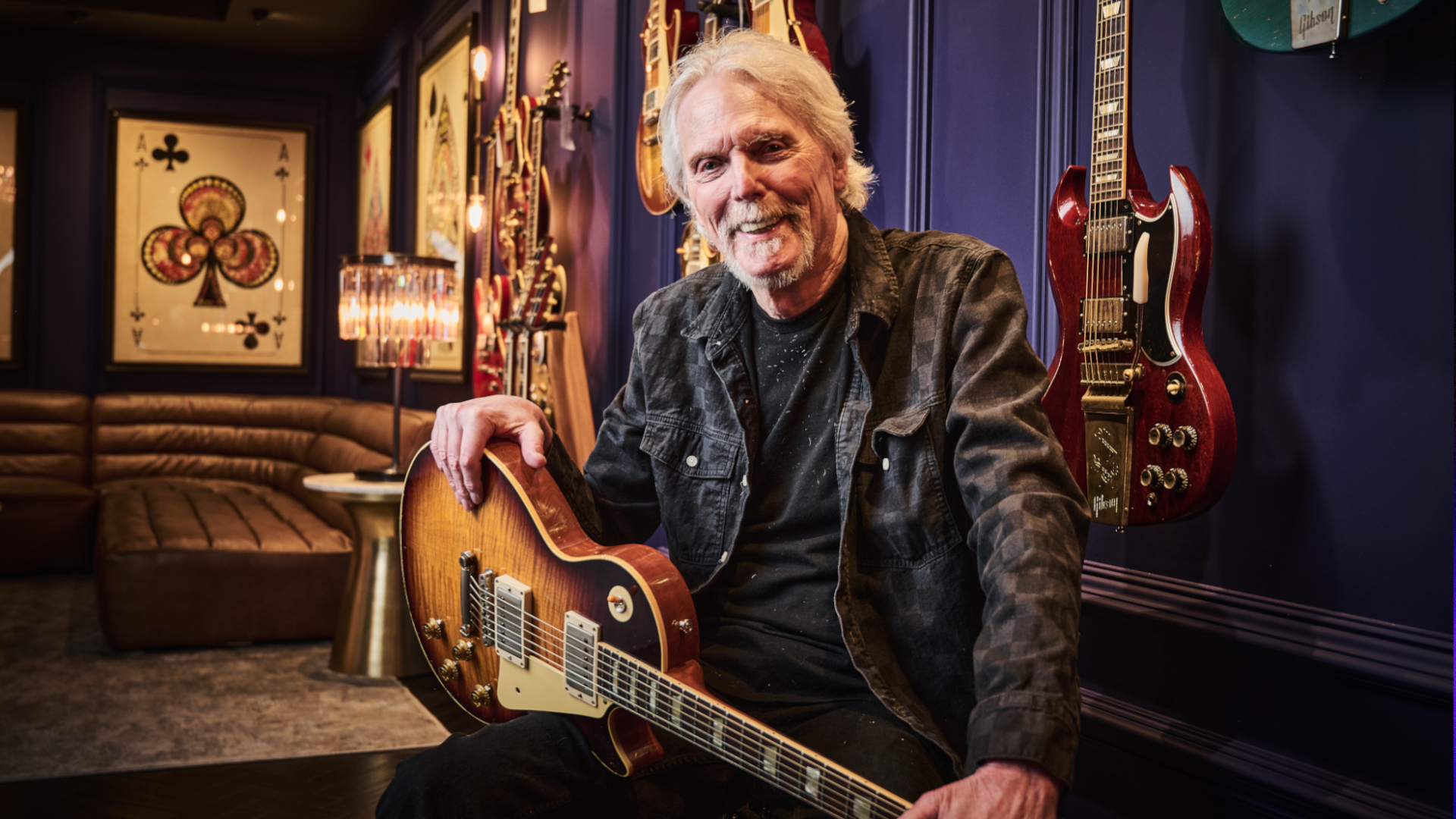"I played this riff, and Phil said, ‘Do you mind if I write some lyrics to that?’ I said, ‘Are you kidding me? Hell, yes!’ " Scott Gorham tells how an offhand moment led to his favorite Thin Lizzy song, released 50 years ago
Gorham and Phil Lynott's partnership would grow into one of the most influential in rock music, and it started during a break in rehearsals

With some two dozen co-writes on Thin Lizzy songs, Scott Gorham must certainly have a favorite. Indeed he does, and it's a tune released 50 years ago today: "She Knows," the opening cut on Nightlife, the American-born guitarist's first album with the Irish rock group.
" ‘She Knows’ actually ended up being the first song on my first album with Thin Lizzy," Gorham told American Songwriter when asked which of his songs has a special meaning for him. "So I’m kinda proud of that!"
A co-write between Gorham and Thin Lizzy bassist/vocalist Phil Lynott, "She Knows" is the product of a friendship that began under unusual circumstances. When the band's original guitarist, Eric Bell, left, he was briefly replaced by Irish rock guitarist Gary Moore before Gorham and Brian Robertson stepped in.
The Lynott/Gorham partnership would soon become the band’s bedrock, but it started with a case of mistaken identity.
“So I’m in this African Dinner Club,” Gorham told Hot Press in 2020. “Out of nowhere I hear this voice, ‘Are you Scott?’ It was Phil, but I thought he was one of the guys that worked there.
“I said, ‘Yeah, I’m supposed to meet a guy called Phil who’s with a band called Thin Lizzy. Can you show me what room they’re in?’ And he said, ‘Yeah I’m Phil’. And that sort of threw me — because he was Black with an Irish accent!”
Gorham, born in Glendale, California, was reaching the final throes of his six-month stay in London, but had connected with Lynott through a mutual friend.
All the latest guitar news, interviews, lessons, reviews, deals and more, direct to your inbox!
“I knew absolutely nothing about them,” Gorham says of the band he was to audition for. “But Phil was great from the very beginning. He had that big flashy smile of his.”

The guitarist soon understood that the band's sound would need a drastic makeover. While early Thin Lizzy tunes like "Whiskey in the Jar" and "The Rocker" had shown promise, the group had failed to make much of an impression on the record-buying public. Gorham had ideas for how to move the group forward from their first three albums using their new guitar tandem.
“There’s so much more you can accomplish musically with two guitars,” Gorham says. “I personally didn’t want to have anything to do with those first three albums. In my mind, this was a different group. We were starting from scratch.
“I remember saying to Phil that we need to stand on our own two feet, so we ought to drop old numbers and just head out on our own — and that included 'Whiskey In the Jar' and 'The Rocker.' And Phil agreed!”
Standing on their own feet would require new material. In a new interview with Guitar Player, Gorham has relayed how the seeds of the soon-to-be-iconic partnership were sown.
“It was at the rehearsals for the Nightlife album, and I think we were on a break," he tells Guitar Player. "I still had my guitar on, and I had this riff. I played it, and Phil said, ‘Is that yours? Is there any more to that?’ I said, ‘Well, yeah,’ and I played the next bit. Phil looked at me and said, ‘Do you mind if I write some lyrics to that?’ I said, ‘Are you kidding me? Hell, yes!’ And you know, I thought he did a great job on that.
“And once that was done, I couldn’t wait to get into the studio, record it and put some extra instrumentation in there — more percussion, and that kind of thing. It was at times like that I realized something has the possibility of being a really cool song.”
If Gorham’s previous comments are to go by, Lynott’s ability to create a supportive and creative environment in the band was vital.
“Right off the bat, Phil encouraged everybody to write,” he told American Songwriter in 2013. “He didn’t want to be the lone ranger, writing guy. He always wanted to be able to write with other people.
Of the fateful moment "She Knows" came to life, he adds: “I just started, you know, banging out that riff that you hear right at the top of the song and he and I finished the song, got the verses together, and the chorus and all that.”

Though the writing environment proved fruitful, both Nightlife and its follow-up, 1975's Fighting , flopped. Gorham goes as far to call them “dismal failures” with Vertigo Records consequently issuing them a ‘do-or-die’ warning as they set to work on 1976's Jailbreak.
“We had everyone saying to us, ‘You’d better do it on this one or there’s the door!’” he recalls. The band and label would butt heads over what its singles should be, but when two American DJs got a hold of "The Boys are Back in Town," Thin Lizzy suddenly “exploded all over America”.
After that, Nightlife and Fighting saw a resurgence in popularity, with the band’s twin-guitar attack paving the way for a surge of harmony-lavished bands like Iron Maiden, Judas Priest and UFO.
Perhaps if Gorham had never ushered out that riff in rehearsal, the history of Thin Lizzy would be very different.
A freelance writer with a penchant for music that gets weird, Phil is a regular contributor to Prog, Guitar World, and Total Guitar magazines and is especially keen on shining a light on unknown artists. Outside of the journalism realm, you can find him writing angular riffs in progressive metal band, Prognosis, in which he slings an 8-string Strandberg Boden Original, churning that low string through a variety of tunings. He's also a published author and is currently penning his debut novel which chucks fantasy, mythology and humanity into a great big melting pot.


